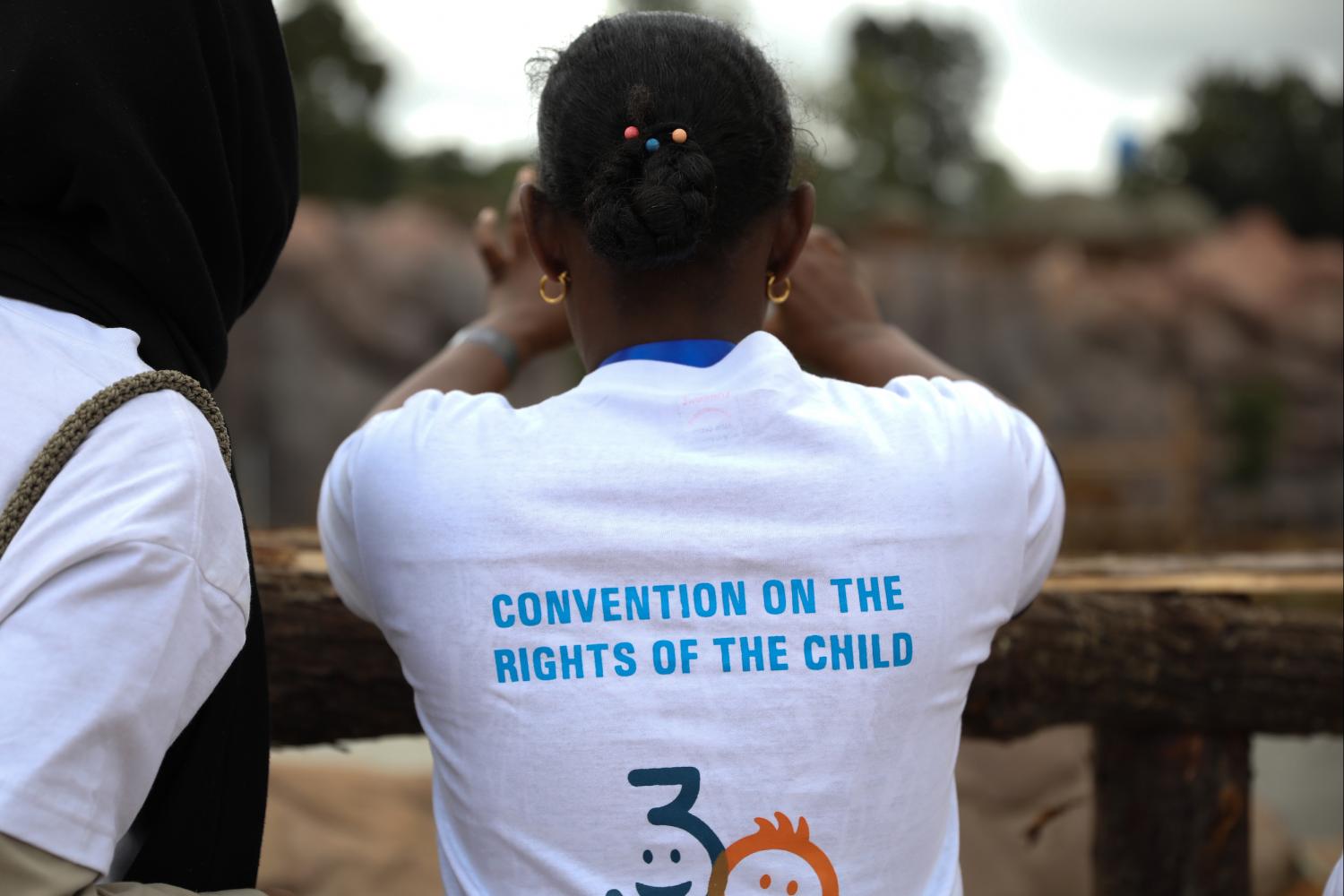
(Image: UNICEF convenes a celebration to mark the 30th anniversary of the Convention on the Rights of the Child in Addis Ababa, Ethiopia, in November 2019. To coincide with the anniversary, the U.N. themed Human Rights Day 2019 around youth engagement.)
The International Day for the Abolition of Slavery is observed on December 2 every year to highlight the importance of eradicating contemporary forms of slavery. It’s followed by the International Day of Human Rights on December 10.
Both of these observance days remind us that the fate of human rights is no longer defined entirely by governments and international institutions. Stakeholders worldwide—businesses, investors, civil societies and governments—are recognizing the very real risk of exploitation within the supply chains that feed and drive our economies.
This year’s International Day of Human Rights focuses on youth participation and empowering young people to know and claim their own rights—and stand up for others.
There is no doubt that youth can be a positive force for change when provided with the knowledge and opportunities they need to thrive. Given a chance—and from what has been seen most recently with the “Greta Effect,” in reference to 16-year-old climate activist Greta Thunberg—young people can contribute to nurturing resilience and building a place for themselves in the collective life of their communities.
The private sector has a clear role to play in the global fight for human rights—and in mobilizing young people as advocates. But before they can inspire future change agents, companies must first get their own houses in order on human rights, identify where abuses could occur in their supply chains, and understand how these issues affect young people worldwide. Practical and actionable steps like these can help to start that conversation.
1. Proactively build business awareness: Most companies are unaware of how youth in forced labor can become part of their supply chains. Companies must understand the legislation and develop strategies to ensure compliance and due diligence.
2. Push beyond voluntarism: It must be mandatory for companies to practice due diligence and report assessment of the risk of child labor or forced labor being used in their supply chains. Management must demonstrate concrete actions the company is to take to address any presence of human rights violations.
3. Protect victims: Enforcement or intervention should first and foremost be enacted with consideration for the protection of those who are vulnerable or are caught in modern slavery.
4. Lever public procurement: Public-sector contracts must require that public bodies and their subcontractors report on their due diligence to address youth labor, modern slavery and human rights.
5. Leverage consumer power: Create a central, public registry of declarations by companies detailing their efforts to stop youth in modern slavery. Create a list of companies required to report under law.
6. Eliminate reporting thresholds: If we are to make children and youth rights core to business, compliance should be demanded of all businesses—large and small.
7. Go beyond reporting: Include proactive due diligence on prevention, identification and remediation of child violations.
8. Require responsibility at the high level: Engage CEOs and boards of directors in the development of policies that relate to child labor and human rights.
9. Use third-party audits as a best practice: Carry out independent third-party audits of all product supply chains at identified points of risk as part of due diligence, per OECD guidance.
The bottom line
At the government level, many countries must catch up in drafting modern slavery legislation. As they do, there are models to build on and improve from, including policies enacted in California, the U.K., France and Australia over the past decade.
But companies do not have to wait for government in order to root out modern slavery within their supply chains, and some are already taking concrete steps forward. Ultimately, addressing modern slavery, child labor and other human rights abuses is not just a public- or private-sector issue, nor is it a problem for only one part of the world to solve. It's a collective challenge that requires collective action. Will we rise to the occasion?
Image credit: Nahom Tesfaye, UNICEF Ethiopia/Flickr

Isobel O'Connell is a recognized change and external relations strategist with a focus on business and human rights.














